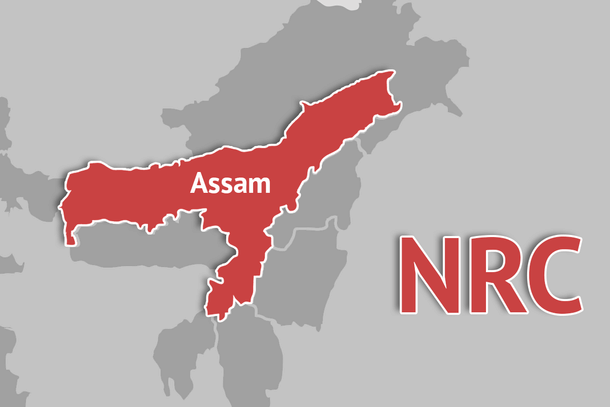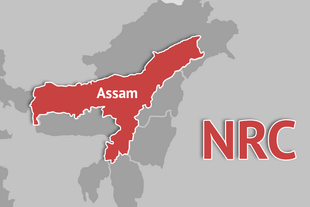Politics
Post-NRC, India Must Have A Stronger Oath Of Citizenship To Deter Toxic Religious Affiliations
R Jagannathan
Aug 30, 2019, 12:55 PM | Updated 12:55 PM IST
Save & read from anywhere!
Bookmark stories for easy access on any device or the Swarajya app.


With just a day remaining for the finalisation of the National Register of Citizens (NRC) in Assam, we (especially the government) should be thinking of what happens next. If millions of residents are going to be left out of the NRC, most of them persecuted Hindus from Bangladesh, we need the Citizenship Amendment Bill (CAB) to be passed expeditiously so that they are not sent back to face further persecution. The only people who we can send back to Bangladesh (or Pakistan or Afghanistan) are those who may not be persecuted – which means largely Muslims illegal immigrants.
But even in the case of Muslim illegals, who may be spread out all over the country and merely trying to earn a livelihood, the chances of deporting them to their original country of residence are remote. Bangladesh is unlikely to play ball.
The logical way forward is to first have an agreement with Bangladesh to admit its citizens are residing here, and then devise solutions to prevent future migrations to this country. A small number can even be encouraged to go back voluntarily. The rest will remain here. But even if some are deported or cajoled to go back, what is to prevent them from coming back?
While the Hindu and Indic religious minorities given citizenship will easily assimilate, it is doubtful if Muslims and Christians will do so, given the nature of those Abrahamic faiths. And if we assume that the long-term goal of these religions is massive conversions, we are essentially asking for more communal tension in the name of dealing with illegal migrants humanely.
One small way forward would be to design a new oath of allegiance for new citizens that goes beyond merely agreeing to follow the Constitution and the law.
The current oath of allegiance to India for new citizens runs like this:
“I, Shri/Smt ---------, do swear/solemnly affirm that I will be faithful and bear true allegiance to India and to the Constitution of India as by law established, that I will uphold the sovereignty and integrity of India, and that I will carry out the duties of my office loyally, honestly, and with impartiality. (So, help me God)”
Atheists can ignore the reference to god, but the rest of the oath is merely about following the law and upholding the integrity of the country.
On the other hand, consider how much more the US demands of its new citizens in its oath.
“I hereby declare, on oath, that I absolutely and entirely renounce and abjure all allegiance and fidelity to any foreign prince, potentate, state, or sovereignty of whom or which I have heretofore been a subject or citizen; that I will support and defend the Constitution and laws of the United States of America against all enemies, foreign and domestic; that I will bear true faith and allegiance to the same; that I will bear arms on behalf of the United States when required by the law; that I will perform non-combatant service in the Armed Forces of the United States when required by the law; that I will perform work of national importance under civilian direction when required by the law; and that I take this obligation freely without any mental reservation or purpose of evasion; so help me God.”
Even here the reference to god is optional, but consider how much more this oath demands. You have to formally reject your previous citizenship loyalties, be willing to fight foreign and domestic enemies, and also bear arms if required under the law. Fighting domestic enemies is a huge ask of new citizens, though in practice this may amount to nothing, for who can define the term “domestic enemies”.
This oath obviously emerges from the historical antecedents that preceded the creation of the US of A and the adoption of its Constitution. In our case, the oath seems to be a mere cut-paste affair from earlier global precedents. It has no reference to any historical challenges we faced as a nation, especially given the context of a partition based on religious identities.
The Indic identity faces two challenges in the modern state. One is the commitment of the Abrahamic religions to convert the rest; and the second is the reality and Hinduism is not based on a unifying set of fundamentals and adherence to one set of beliefs and practices which automatically acts as an effective shield against aggressive conversion agendas.
Given our history, where only Hindus have been ethnically cleansed from Muslim-majority regions in the sub-continent (Pakistan, Bangladesh and Jammu & Kashmir), the demographic changes threatened by unchecked future illegal migrations need to blocked.
One way would be to be more demanding in our oath of allegiance. Here is how it could be worded in future.
“I, Shri/Smt ------------------ do swear that I will be faithful and bear true allegiance to India, that is Bharat, and to the Constitution of India as by law established, that I will uphold the sovereignty and integrity of India, and that I will carry out the duties of my office loyally, honestly, and with impartiality.
“I acknowledge that India is a multi-faith country, and as such all faiths are equal and worthy of respect. I hereby promise to respect all Indian faiths as equal and on a par with my own faith. I will not seek to actively convert or participate in religious activities where the objective is to convert people from other faiths to my own faith, for I acknowledge that all faiths have their own validity in their approach to higher truths. I additionally accept that even those who do not believe in god or religion deserve my respect and acceptance.
“I also acknowledge that I can be stripped of my citizenship in case I am found to be wanting in upholding this oath, whether through active subversion or indirect support to others who do not believe in upholding the multi-faith, syncretic character of India.”
While the new oath will not be enough to prevent jihadis and other disrupters from propagating Hinduphobic ideas, it would at least be a start. Who knows, when new migrants learn that India cannot be a free-for-all, either they may choose not to migrate, or learn to live without their own religious prejudices.
It is time we dumped out borrowed oath of allegiance and invented our own according to the challenges we face.
The need for a new oath stems from the reality that regional demography shifts are difficult to roll back. Even the US cannot reasonably expect to deport its illegal Hispanic migrants despite having all the power, resources and heft to do so.
In India’s case, even if we pass the CAB, we will be left with millions of non-Hindu illegal migrants. In the short term, the best we can do is remove their names from electoral rolls and allow them to stay on renewable work permits. But even in such cases, there will be the question of giving citizenship rights to children born here, not to speak of future migrants who may choose to remain here forever.
Our real problem is not accommodating them in India, but allowing people brought up on intolerant religious ideologies to create trouble here. The new oath will at least tell them that their faith cannot be supreme in India.
Jagannathan is former Editorial Director, Swarajya. He tweets at @TheJaggi.





